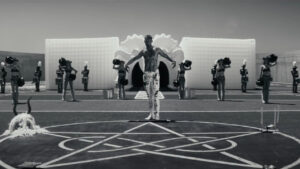The evolving landscape of luxury travel is prompting a shift in marketing strategies, according to a recent article in *Hospitality Net*. Instead of a generic approach, hotels are increasingly focusing on attracting specific niche travelers, thereby securing more direct bookings and maximizing profitability. This targeted approach recognizes that the ultra-high-net-worth individual (UHNW) and high-net-worth individual (HNWI) segments, crucial to the luxury hospitality market, have diverse and discerning tastes. The article highlights ten distinct tourist types, underscoring the need for tailored services and experiences. For example, the emphasis on attracting art enthusiasts, as one of these ten types, speaks to the growing importance of cultural tourism in the luxury sector.
Reports indicate a significant correlation between high-end art appreciation and luxury travel. Affluent art collectors, often frequenting exclusive auctions like those held by Christie’s and Sotheby’s, are a prime target for luxury hotels. These individuals, according to *Hospitality Net*, “are often looking for experiences that complement their passion for art,” highlighting a need for hotels to provide access to exclusive gallery openings, private museum tours, and curated art-themed itineraries. This demand reflects a broader trend: the intertwining of wealth, artistic expression, and cultural experiences as a defining element of luxury travel. Industry sources suggest that the value of the global art market, already in the hundreds of billions of dollars, further underscores the economic significance of this demographic.
“The days of generic, one-size-fits-all travel marketing are over,” states the *Hospitality Net* article. The article continues by emphasizing that “catering to specific tourism niches is the perfect way to attract the right guests and gain those all-important direct bookings,” which highlights the direct link between specialized marketing and improved revenue generation within the luxury hotel sector. To cater to this segment, luxury hotels are increasingly partnering with leading art galleries, offering bespoke concierge services that arrange private viewings and exclusive access to prestigious art events. This level of personalization and exclusivity is paramount in securing the loyalty of discerning art collectors, according to market research firms specializing in the luxury travel sector. The cultural significance of these relationships extends beyond simple transactions; it reflects the sophisticated tastes of the target demographic and positions the hotels as sophisticated curators of experience.
The luxury hotel sector’s engagement with the art world is more than just a marketing ploy; it reflects a deeper understanding of the ultra-affluent traveler. Sources suggest that for many HNWIs, the purchase and appreciation of art is deeply intertwined with their lifestyle and identity. This extends beyond simply acquiring valuable pieces; it involves building connections with artists, curators, and other members of the art community. Hotels are leveraging this by offering curated experiences that foster these connections, further strengthening their position as destinations of choice for affluent art lovers. The article notes that hotels are actively creating partnerships with local galleries and museums, developing unique art-focused packages, and investing in their own art collections to enhance the overall guest experience. As one report notes, the impact on the overall appeal and perceived value of the hotel is substantial.
In conclusion, the *Hospitality Net* article offers a compelling glimpse into the future of luxury hospitality. The focus on niche marketing, particularly targeting art enthusiasts, demonstrates a sophisticated understanding of the evolving preferences of UHNWIs and HNWIs. By actively engaging with the art world and creating tailored experiences, luxury hotels can not only attract a highly desirable clientele but also cultivate lasting relationships built upon shared passions and refined tastes. The success of this approach is projected to be significant, leading to increased revenue streams and strengthening the sector’s overall positioning within the luxury lifestyle market. The integration of art and culture into the luxury travel experience is likely to become an even more defining feature in the years ahead.
Credit(s): 10 Types of Tourists You Could Attract to Your Hotel











